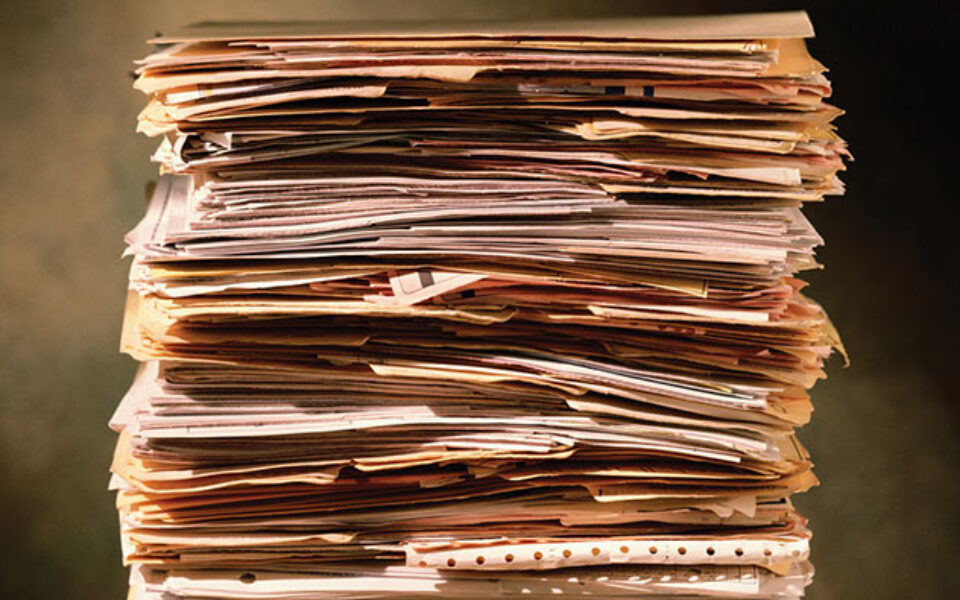Common Insurance Mistakes We All Make
By Steven D. Brett, Managing Director, Partner, Marcum Wealth

Hurricane Irene came blowin’ in over the final weekend of August for the first hurricane to hit the East Coast in years. In fact, New England has not experienced a hurricane since “Bob” attacked in 1991. For quite some time now, you may have noticed and commented about the weird weather we are experiencing.We have endured extremely-cold wet winter, tornados in the Midwest of historic proportions, floods, hurricanes, droughts, and a rare earthquake that hit the Northeast and affected 22 states.
Crazy weather is not just a domestic problem. In Russia droughts destroyed 40% of the grain crop, sparking an attendant rise in grain prices. The same drought caused 30 foot deep cracks to appear in the farmlands north of China’s Inner Mongolia Autonomous Region, keeping farmers out of the fields. Meanwhile, other parts of China have been experiencing floods and mudslides. In addition, in this country certain regions have seen 100-year floods, while places like Texas have had 100+ degree temperatures for months with no rain. I could go on, but you get the idea — the weather has turned undeniably weird and at times it has proven to be fatal.
Catastrophe modeler AIR Worldwide estimates Irene’s insured losses at $3 billion to $6 billion, with some direct and indirect cost estimates topping $40 billion. The death toll from Hurricane Irene hit a sobering 44 peoplethat were reportedly killed by thestorm. These numbers and fatalities prove that weather and life is sometimes dangerous and often unpredictable.
With that backdrop we all know we need insurance; but, it is not usually at the top of our priority list. Insurance is a valuable tool to protect our families from unforeseen events that can severely damage their financial futures, but it does not often get much of our attention. So, we compiled a list of common insurance mistakes to help you determine if you are properly insured as well as avoid before it is too late.
- Not having any life insurance – Life insurance has two basic purposes: to provide estate liquidity and to provide sufficient assets for a surviving family to live after the wage earner has passed away.
- Having too much life insurance – If substantial assets are accumulated, then survivors may already have adequate coverage.
- Not having life insurance for a non-working spouse – The value of a “non-working” spouse, which can be substantial, is often overlooked.
- Buying life insurance on children – Such coverage rarely makes economic sense unless the policy pays interest which is tied to current market rates. The premium dollars could be better spent by contributing to a custodial account for the child’s future education needs.
- Underinsurance of personal residences – Most homeowners obtain homeowner’s coverage and then forget about it. They may fail to realize that if construction costs increase at 8% per year, the replacement cost of a property doubles every nine years. Determine what your house (not counting the land) is really worth and then see if it matches your coverage.
- Having medical insurance with inadequate lifetime limitations — With the ever increasing cost of medical care, it is easy to incur very high expenses for an extended hospital stay. Many policies cover only $100,000 to $150,000. The minimum coverage an individual should have is $250,000 to $500,000.
- Not having disability insurance – You’ve probably heard it before. Your family’s single greatest asset is more than likely your ability to earn a living.
- Having a disability policy with too restrictive a definition of disability – Many policies cease coverage if the insured can perform any occupation after the second year of coverage.
- Holding a disability policy after retirement – Make sure you are not paying premiums in retirement.
The recent devastation caused by Hurricane Irene underscores the need and reminds us all that we must have an emergency contingency plan for ourselves and our families. Many people have begun to think about what they would do if caught on the wrong side of a natural or family disaster. The time is ripe for you to sit down and review insurance needs, emergency planning, and some of the common mistakes and overlooked issues associated with insurance.
This material was prepared by Raymond James for use by Steven D. Brett, President of Marcum Financial Services LLC., and Branch Manager of Raymond James Financial Services, Inc. Member FINRA/SIPC.
If you have any questions pertaining to this article, please contact Steven D. Brett at 631-414-4020 or by e-mail at [email protected].
Asset allocation and diversification do not ensure a profit or protect against a loss. Investment suitability must be determined for each individual investor. Investing involves risk and investors may incur a profit or loss. This information herein was obtained from sources which we believe reliable, but the accuracy of which cannot be guaranteed. No representation is made that it is accurate or complete, that any returns indicated will be achieved, or that you should rely on it to make an investment decision. Changes to assumption may materially impact returns. Past performance is not indicative of future results.

















